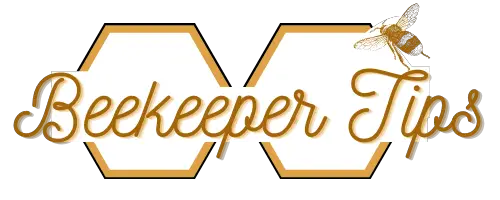Do wasps produce honey? Yes, there is one species that does! This fascinating wasp still eats insects as most other wasps do, but, like honeybees, it has the ability to store nectar and ripen this into a sort of honey! Read on to find out more about this weird wasp.
Table of Contents
What Is The Difference Between A Wasp And A Honeybee?
Wasps rely on animal protein (mostly) as their primary source of protein and will collect sugars from flowers, insects, cooldrink cans, and so on for their energy.
Somewhere in the past, some wasps learned to eat pollen, and use that as a source of protein instead of having to hunt insects. It is easier to store pollen than insects – to date no insect has figured out refrigeration yet – so by shifting to being essentially vegan wasps, honeybees have been able to develop technologies that allow them to store both nectar (honey) and pollen (bee bread).
The ability to store food allows honeybees to build colonies that can survive the long cold, or dry, periods and emerge from these periods with enough workers to be incredibly productive. Wasps on the other hand generally struggle to make it through winter as a colony, because they cannot store enough food to overwinter. This is why yellowjackets cannot sustain a colony through winter in colder climates and will often attack honeybees going into winter.
Do Wasps Produce Honey?
Generally, the answer is no. However, there is one species of wasp native to a few parts of the Southern US, Mexico, and extending into South America as far as the beginning of Argentina. Unlike honeybees, however, this wasp does not make wax – it stores the nectar it collects in a paper nest much like those that other wasps use for brood rearing.
Brachygastra mellifica is the species name of our honey-making wasp. If we look at the species name of the western honey bee, it is Apis (Latin for bee) mel (honey) fer (that brings) so Apis mellifera – the bee that brings honey. If we look at our interesting honey gathering wasp, it is Brachy (branch) gastra (stomach) mel (honey) fic (stick). So I assume, and do not trust me too much on this as I did Latin 38 years ago, that this refers to the fact that these wasps have a sort of tube that connects their thorax to the abdomen, and that they stick honey into their nest combs!! I am sure it is something like that.
Ok, so now we have answered our question – do wasps produce honey? And the answer is no, wasps do not produce honey, but there is one wasp that does! All the others do not!
Read more about How Long Does It Take Bees To Make A Hive? How To Get Your Bees In The Fast Lane
Do Wasps Make Honeycomb?
Do wasps produce honey – as we have ascertained above, there is only one wasp that produces honey – but what does it store the honey in? So these wasps store their honey in a paper-like structure, not a wax structure like a honeybee honeycomb. Loosely, they do sort of make honeycombs but unlike bees, where these are aligned vertically, the honeycombs hang down, and basically, the nest is a bit of a mess compared to a honeybee hive. It works, but it is more of a work in progress.
What Is A Honey Wasp Nest?
A honey wasp nest is a nest built by the honey wasp, Brachygastra mellifica . The nest consists of a paper nest of hexagonal structures that can be up to 20 inches wide. The nest contains both honey storage areas and brood rearing areas with larvae. Unlike bees, there is no pollen storage as these bees do not collect much pollen! However, unlike many other wasps, they have hairy bodies and are actually important pollinators of crops such as avocadoes. Avocados have an infernally complex pollination system, hence it is good that there are useful pollinators such as these wasps that can help out.
Honey wasps, much like many other wasps are a prized food source. The larvae are a delicacy throughout their range, and the honey is sought after. I was initially rather disturbed at the idea of eating wasp larvae, but my Mauritian business partners once gave me some wasp larvae fried in butter with peri-peri sauce and I can safely say that they are actually very good eating once you get over the initial shock of eating larvae.
There are certain benefits that men, and their bed partners, may notice when eating these wasps – they definitely turbocharger the hormonal system in a most interesting fashion. Well worth a try – I would suggest that this is not something to try on your own, however!!
Do Wasps Drink Nectar?
Yes. A lot of wasps do! I encourage wasps in my garden for this exact reason – they drink nectar and normally eat insect pests. We have a certain species here that eat aphids – I actually often get people phoning me and saying “There are some bees hanging from my roof” and find that they are actually paper wasps. I have worked out a way to relocate these and put them around my garden in peak summer. The colonies die in winter.
They have educated me a few times when I bumped them – a wasp can sting multiple times, and when it does, it sinks its sting deep in your leg, or arm. Once I was stung on the ear and the ear has never looked quite the same where that happened. I think wasp venom is a lot more toxic than bee venom – so try to avoid wasp stings. Bee stings are apparently quite healthy, so I always make sure to get my monthly 10-50 stings.
Wasps will also collect honeydew – they learn how to go and squeeze sap-sucking insects such as aphids – this elicits a little drop of sugar to emit from the rear of the aphid, and the wasps drink this. In this way, they harvest honeydew much the same way that bees do.
In Conclusion – Do Wasps Produce Honey?
One species of wasp does! So we can say maybe that wasps do not produce honey in general, but there is a wasp that does. So yes, wasps do produce honey – if they are Brachygastra mellifica. And these wasps are a complete anomaly, but the honey is tasty and healthy, and so are the larvae! The honey wasp is also an important pollinator, which is unusual for a wasp. These are bizarre creatures, but that is one of the things about our planet. Not everything fits in a box.

Dr. Garth A. Cambray is a Canadian/South African entrepreneur and beekeeper with 28 years of experience in apiculture and specializes in adding value to honey. His Ph.D. research developed a new advanced continuous fermentation method for making mead that has resulted in a number of companies globally being able to access markets for mead. His company, Makana Meadery, exports honey mead to the USA where it is available to discerning connoisseurs. He has also developed technologies to commercially manufacture organic honey vinegar in Zambia for export globally. He holds a few patents globally in the ethanol industry and believes in technology and knowledge transfer for human development and environmental sustainability. One of his proudest achievements is the fact that the wind farm he started at one of his old apiary sites has essentially made his hometown carbon neutral.




